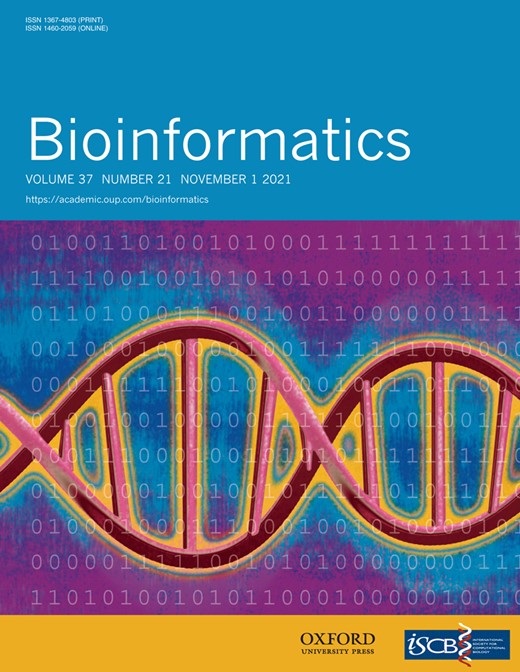-
PDF
- Split View
-
Views
-
Cite
Cite
Christiana N Fogg, Diane E Kovats, Ron Shamir, 2020 Outstanding contributions to ISCB award: Judith Blake, Bioinformatics, Volume 37, Issue 21, November 2021, Page 3701, https://doi.org/10.1093/bioinformatics/btaa511
Close - Share Icon Share
The Outstanding Contributions to the International Society of Computational Biology (ISCB) Award recognizes outstanding service contributions to the Society by any member through exemplary leadership, education, service, or a combination of these three elements. Judith Blake, Professor at the Jackson Laboratory in Bar Harbor, ME, USA is the 2020 winner of the Outstanding Contributions to ISCB Award and will be recognized at the 2020 ISMB virtual meeting being held on July 13–16, 2020.
Judith Blake: science and service intertwined
Judith Blake has spent most of her career at the Jackson Laboratory in Bar Harbor, ME, USA developing bioinformatics systems for integrating genetic, genomic and phenotypic information and working to make data from different genomes more accessible for genomics and genetics research. Early in Blake’s career at the Jackson Laboratory, she became a principal investigator with the Mouse Genome Informatics (MGI) project, a widely used international open access database resource for the laboratory mouse, providing integrated genetic, genomic and biological data to facilitate the study of human health and disease. Blake’s work on the MGI led to her interest in bio-ontologies. During the 1998 ISMB meeting, she and other colleagues working on genome projects in different model organisms recognized a need for open access bio-ontologies, which are controlled structured vocabularies for molecular biology that support the comparison of data across different genomes. She is one of the founding principal investigators and one of current leaders of the Gene Ontology (GO) Consortium group. Together with her research team, she has spent many years contributing to development of bio-ontology systems and to supporting integration of functional genomics data for mouse, in particular, within MGI and the GO project.

Beyond Blake’s contributions to the bioinformatics and data curation communities, she has served ISCB in many ways. She recalls attending the first ISMB meeting at the National Library of Medicine in Bethesda, MD, USA in 1993, which led to the eventual formation of ISCB. Blake said, ‘Here, I found a community of investigators actively engaged in creating new tools and approaches to computational scientific investigations. My colleagues in ISCB shared my excitement as new innovations were developed to understand molecular systems and data’. She has come to appreciate how ISCB brings together scientists from academia, industry and technology in an open and supportive environment that fosters the building of new tools to advance the understanding of biological systems. Blake has served on the ISCB Board of Directors and chaired the ISCB Public Affairs and Policy committee, as well as working on other program and review committees. She has also represented ISCB on the Federation of American Societies for Experimental Biology Board of Directors.
Blake sees many benefits in pursuing scientific service opportunities and said, ‘I encourage young scientists and trainees to engage in those ISCB activities that match their passions. The opportunity to support their colleagues and to engage in a scientific network will both enhance the interactions of a global network of scientists but will also bring new insights to their own scientific investigations’.



